Dental bridges in Turkey are one of the types of restorative dentistry utilised to bridge the space left by missing teeth between adjacent natural teeth or dental implants. The dental bridges in Turkey are significant because they rebuild a smile's appearance and functionality in cases when tooth loss has occurred. Dental crowns or anchors connected to natural teeth or implants often support the prosthetic teeth, or “pontics,” on either side of a dental bridge. The layout does not solely fill the gap caused by lost teeth, but it prevents nearby teeth from shifting, ensuring perfect bite alignment. The dental bridge costs depend on the number of artificial teeth involved, the placement of the bridge, and the materials used. Dental bridge costs in Turkey are cheaper than in other countries.
The dentist prepares the teeth that surround it or implants to support the bridge as part of the process of how dental bridges work. Imprints are created to make a dental bridge that fits perfectly and blends in with the natural teeth after the teeth are ready. The patient is allowed to freely chew, speak, and smile again after the bridge is firmly positioned. Patients with one or more missing teeth and neighbouring teeth that are healthy and strong enough to support the bridge are often advised to use dental bridges by their dentists. The operation is commonly suggested to improve smile appeal, minimise misalignment due to tooth loss, and improve oral function.
Dental bridges have a few advantages, including improved appearance, functional restoration, and resistance to adjacent teeth movement. The disadvantages include the requirement to modify nearby teeth, the risk of gum recession with time, and the bridge's limited lifespan that extends up to twenty years, depending on aftercare and dental hygiene habits. Dental bridges continue to be a popular and practical result for addressing problems caused by missing teeth in Turkey and many other nations, despite these factors.
How to Explain the Concept of Dental Bridge in Turkey?
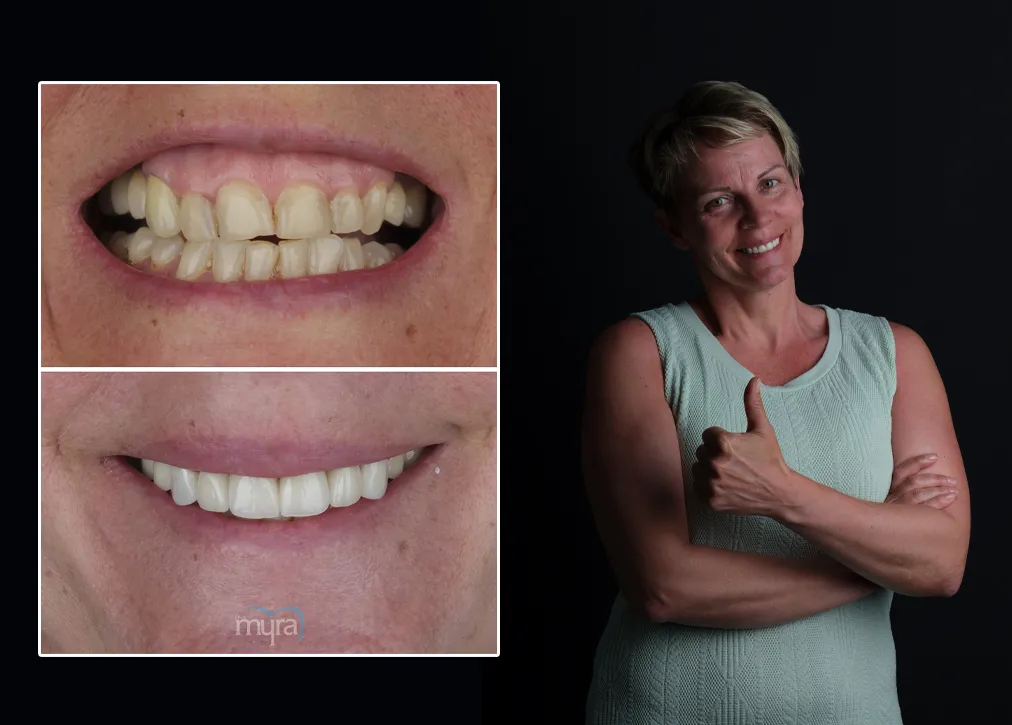
To explain the concept of a dental bridge in Turkey, providing a thorough restorative dental treatment is necessary. A dental bridge is a specially designed prosthetic that is intended to solve the functional and visual concerns associated with losing teeth. Artificial teeth (pontics) are integrated into the complete restoration and are secured on either side by dental crowns or abutments. The crowns are positioned carefully on the neighbouring natural teeth or dental implants to form a bridge that fills the space left by lost teeth. The procedure includes careful preparation of the implants or supporting teeth to guarantee a flawless fit.
The comprehensive and individualised approach used by Turkish dental practitioners must be highlighted while introducing the idea of a dental bridge in Turkey. The process often begins with an initial consultation, during which the dentist evaluates the patient's oral health, discusses their concerns, and develops a customised treatment plan. Individuals need to prepare for an extensive therapeutic journey. It involves scheduling an initial consultation, performing any necessary preparatory procedures, such as tooth extractions or implant placements, and then fabricating and fitting the custom bridge. Turkish dental clinics frequently provide high-quality care at reasonable prices, attracting people looking for economical but respected dental care. Discussions about the type of bridge, the quantity of missing teeth, material preferences, and post-treatment are included in the plan.
The patient's smile is restored to its full and harmonious state due to the customised method, which guarantees that the dental bridge blends in perfectly with the natural dentition. A dental bridge serves two purposes, one of which is to improve the aesthetic appeal of the smile and the other is to maintain proper bite alignment and avoid adjacent teeth from shifting. It emphasises the collaborative nature of the procedure between the dentist and the patient. A dental bridge in Turkey promotes oral health and restores confidence in one's smile by acting as a long-lasting and transforming option for people who lack teeth.
How does a Dental Bridge in Turkey work?
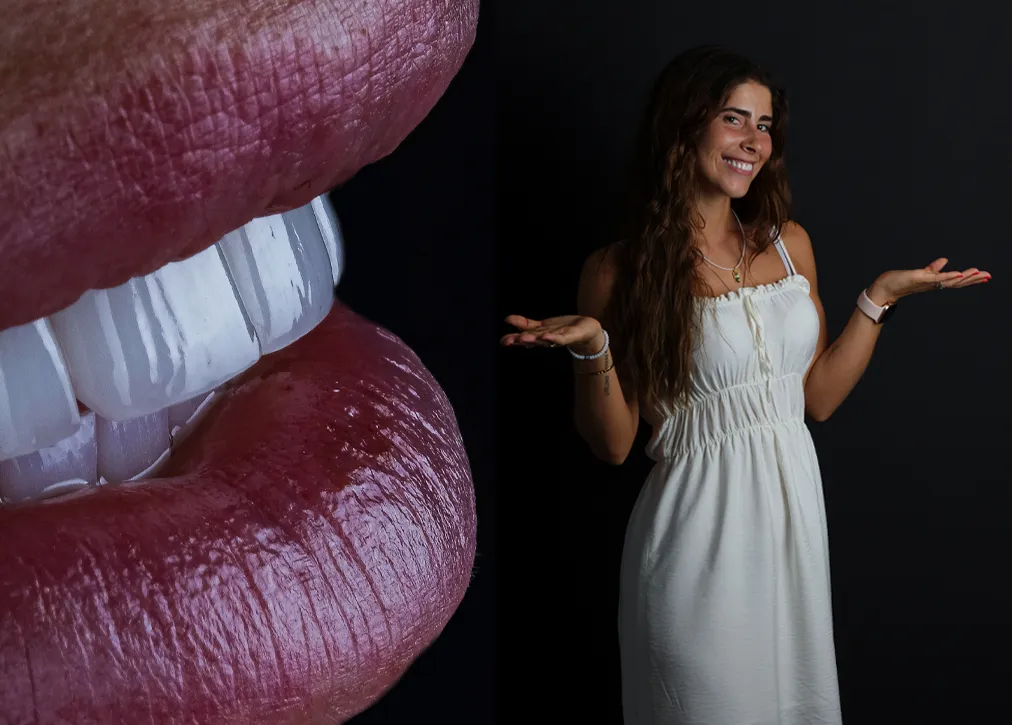
The dental bridge in Turkey works as an essential restorative remedy to deal with the problems caused by the loss of teeth. The artificial tooth prosthesis, which fills in the space left by one or more lost teeth, is supported on sides by dental crowns or foundations and is known as “pontics.” The anchors are often connected to adjacent natural teeth or dental implants, resulting in the seamless attachment within the oral cavity. A dental bridge is installed by carefully preparing the neighbouring teeth or implants to act as solid bridge anchors.
Imprints are made to create a bridge that fits them perfectly and closely resembles their actual teeth after the patient is ready. A dental bridge keeps the adjacent teeth from moving and aids in keeping normal bite alignment, in addition to filling the gap left by a missing tooth to restore the smile's cosmetic appeal. A long-lasting and useful dental restoration is the final result, which promotes better biting, oral health, and self-confidence.
A dental bridge has the goal of reducing the problems that come with missing teeth in terms of function, appearance, and oral health. The essential part of restorative dentistry is filling in the space left by one or more missing teeth completing the restoration of the smile. Dental crowns or abutments support the prosthetic teeth or pontics, on either side of a dental bridge. The solid and secure structure is created by bonding the crowns to dental implants or the natural teeth next to the gap.
A dental bridge's major function, other than its aesthetic goal of covering a gap caused by a missing tooth, is to keep the neighbouring teeth from moving and preserve the oral arch's correct alignment. It prevents future difficulties, such as misalignment and biting disorders besides promoting better oral function, including speaking and chewing. The ultimate goal of a dental bridge is to improve a person's oral health and general quality of life by offering them a long-lasting, practical, and aesthetically beautiful substitute for one or more missing teeth.
Why are Dental Bridges Important in Turkey?
Dental bridges are important in Turkey for people who lack teeth, due to an array of oral health and cosmetic issues. The capacity of dental bridges to offer long-lasting and efficient methods of restoring smiles is responsible for its worth in Turkey. Dental bridges are an essential component of restorative dentistry, and Turkey is well-known for its cutting-edge dental care facilities and affordable prices. The bridges are used to maintain normal bite alignment, stop neighbouring teeth from falling, and fill in the gaps left by lost teeth while improving the smile's cosmetic appeal.
Dental bridges in Turkey prevent adjacent teeth from sliding into gaps caused by missing ones. It helps to maintain normal dental alignment and avoid potential complications, such as biting problems or temporomandibular joint (TMJ) disorders. Bridges stabilise the jaw structure, avoiding facial volume loss and contributing to a more youthful appearance. Dental bridges are an appealing alternative for consumers seeking high-quality dental care at a low cost in Turkey due to their affordability and accessibility. Dental specialists in Turkey are well known for their competence, employing cutting-edge materials and technology to provide long-lasting and aesthetically beautiful outcomes.
The significance of dental bridges in Turkey originates not just from the functional advantages, but from the ability to improve quality of life by restoring confidence in one's smile and supporting long-term oral health. The preventive measure lowers the chance of problems including misalignment and biting disorders, which helps with long-term oral health. Dental bridge surgeries are a critical option for people seeking complete and cost-effective solutions to meet the issues of missing teeth, due to their accessibility and high quality in Turkey. Dental bridges in Turkey are valuable in providing patients with a long-lasting and practical solution that goes beyond aesthetic advantages, guaranteeing better chewing ability, improved oral function, and the maintenance of excellent dental health.
What are the situations in which Dental Bridge in Turkey is preferred?
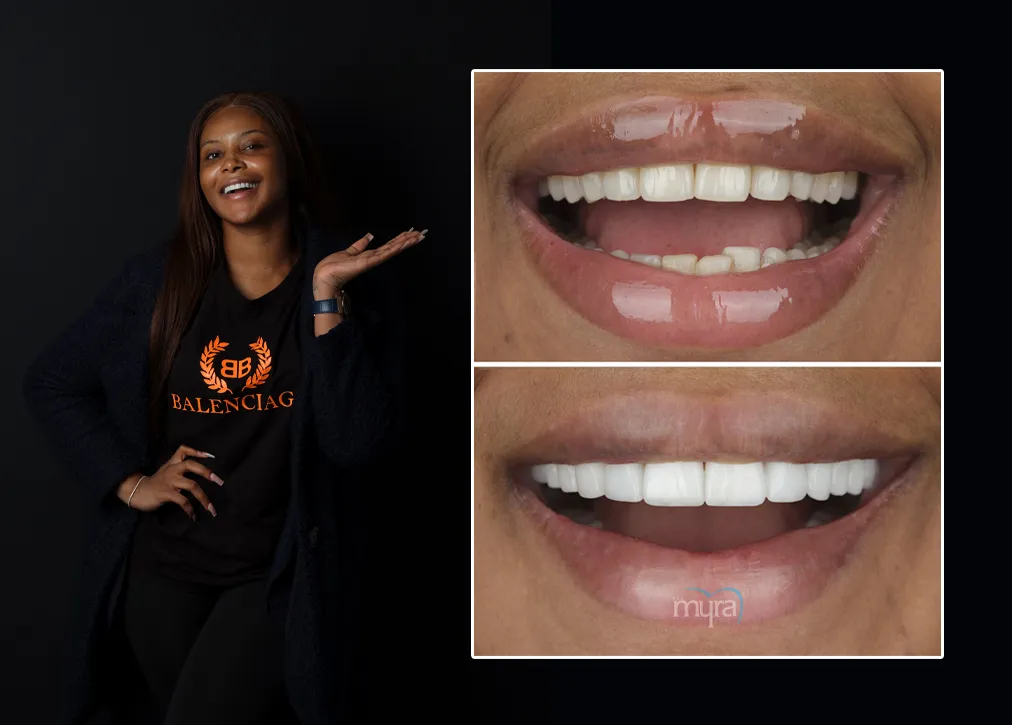
The situations in which dental bridges are preferred in Turkey are listed below.
- Accessible and Cost-effectiveness: Dental bridges are a preferable choice to people seeking high-quality restoration methods at a reasonable cost in Turkey, where dental care is often cheaper than in many Western nations.
- Preventing Surgical Procedures: Dental bridges are a better substitute for dental implants for patients who prefer not to undergo surgery to replace a lost tooth.
- Keeping Teeth from Shifting: Dental bridges are marked to keep the teeth around the missing tooth or teeth from sliding into the space left by the tooth or teeth that are removed. It protects against future dental problems and preserves the normal alignment of the bite.
- Cosmetic Issues: Dental bridges are often selected by people who are self-conscious about the appearance of the smile after losing one or more teeth. The bridge restores the smile's attractiveness by offering a natural replacement.
- Time Management: Dental bridges offer a quicker solution in comparison to other restorative treatments, making them preferred for individuals looking for a timely tooth replacement.
- Replacement of One Tooth: Dental bridges are a recommended alternative when a person has lost a single tooth. The bridge effectively fills the gap by anchoring a “pontic,” or artificial tooth, to the neighbouring natural teeth or dental implants.
- Strong and Healthy Adjacent Teeth: Dental bridges work successfully if the teeth adjacent to the gap are strong and healthy enough to bear the bridge. The neighbouring teeth are often prepared and capped with crowns to perform as anchors for the bridge.
How is Dental Bridge in Turkey Treatment Done?
The dental bridge treatment in Turkey is done by following the steps below.
- Begin with a dentist’s consultation. The procedure begins with an initial consultation with a dentist in Turkey. The dentist evaluates the patient's oral health, addresses any problems, and decides if a dental bridge is the best plan of action during the current appointment.
- Make a treatment plan. The dentist works with the patient to design a customised treatment plan if a dental bridge is thought to be necessary. The plan specifies the number of “pontics” required, the materials to be used, and the type of bridge.
- Prepare the tooth or teeth. The neighbouring teeth (abutment teeth) that support the bridge are prepared for traditional bridges. A small amount of enamel is removed to make room for the dental crowns that need to be installed on the teeth.
- Get the imprints. The surrounding area and the prepared teeth are imprinted. The custom-fit dental bridge is made using the impressions (imprints) as a mould.
- Try the temporary bridge. The patient is given a temporary bridge to preserve aesthetics and shield the exposed teeth while the permanent bridge continues to be made in a dental laboratory.
- Fit the permanent bridge. The patient returns to the dentist for the fitting of the permanent bridge when it is ready. The dentist evaluates the patient's bite, makes any required changes, and makes sure the bridge fits properly.
- Check the permanent placement. The dentist sets the dental bridge in place once the patient is satisfied with how it fits and looks. The abutment teeth's crowns are firmly cemented, stabilising the “pontics” in the space.
- Maintain post-treatment care. The dentist gives post-treatment recommendations on how to take care of the teeth after treatment, including oral hygiene, food intake, and follow-up dentist consultation. Dental treatments in Turkey are a perfect choice because of the services, quality, and costs.
How Long Does Dental Bridge in Turkey Treatment Take?
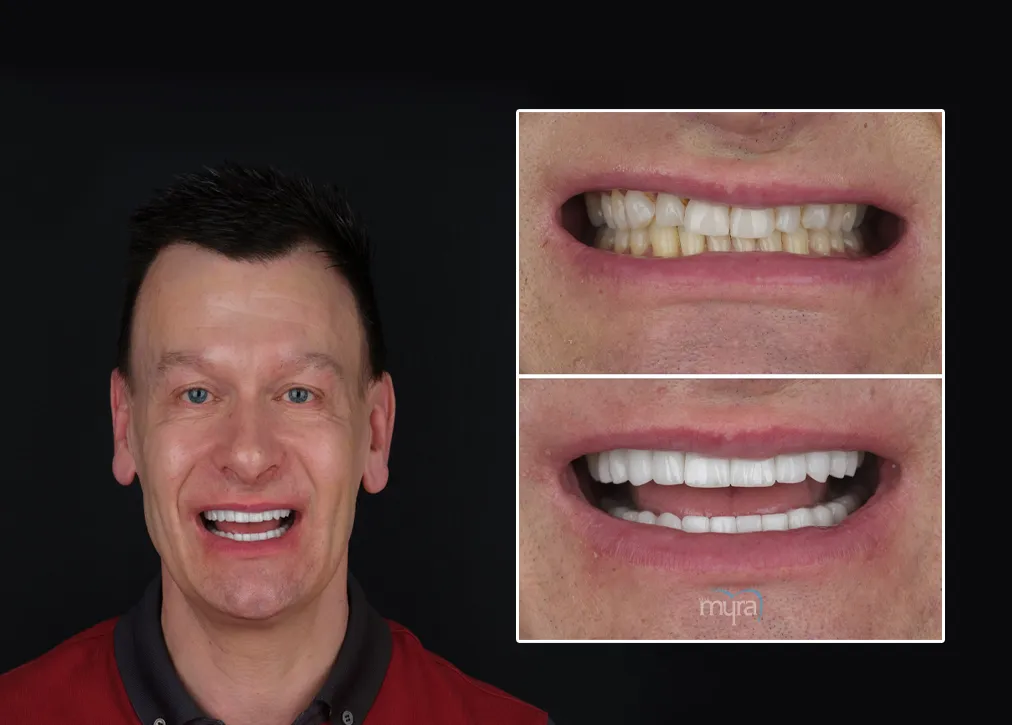
The dental bridge treatment in Turkey takes one to four weeks. The length of a dental bridge treatment in Turkey varies depending on several factors, including the intricacy of the case, the type of bridge chosen, and the patient's oral health. The course of treatment includes several appointments over a few weeks. One to two meetings are usually needed for the initial check-up and treatment planning phase to evaluate the patient's oral health, go over available alternatives, and develop a customised plan. The shaping of the abutment teeth, or tooth preparation, is typically done in a single visit.
Imprints are obtained during tooth preparation, and a temporary bridge is supplied while the permanent bridge is carefully made in a dental laboratory. The fabrication process requires a few weeks. The patient returns for the fitting and final placement of the permanent bridge when it is ready. Remember that every case is different, and the dentist gives a more precise estimate depending on every aspect of the patient's situation. Individuals must establish their dental bridge treatment timetable by considering multiple factors, including the type of bridge, any extra treatments that are needed, and the processing time of the dental laboratory.
The process of replacing lost teeth with a dental bridge is quick, painless, and affordable. The central dental cavity is protected with coverings made of porcelain or zirconium. The procedure requires three to four laboratory sessions, and bridged teeth are not extracted. The dentist's recommendation determines whether to use metal or non-metal-supported porcelain veneers.
What are the Benefits of Dental Bridges in Turkey?
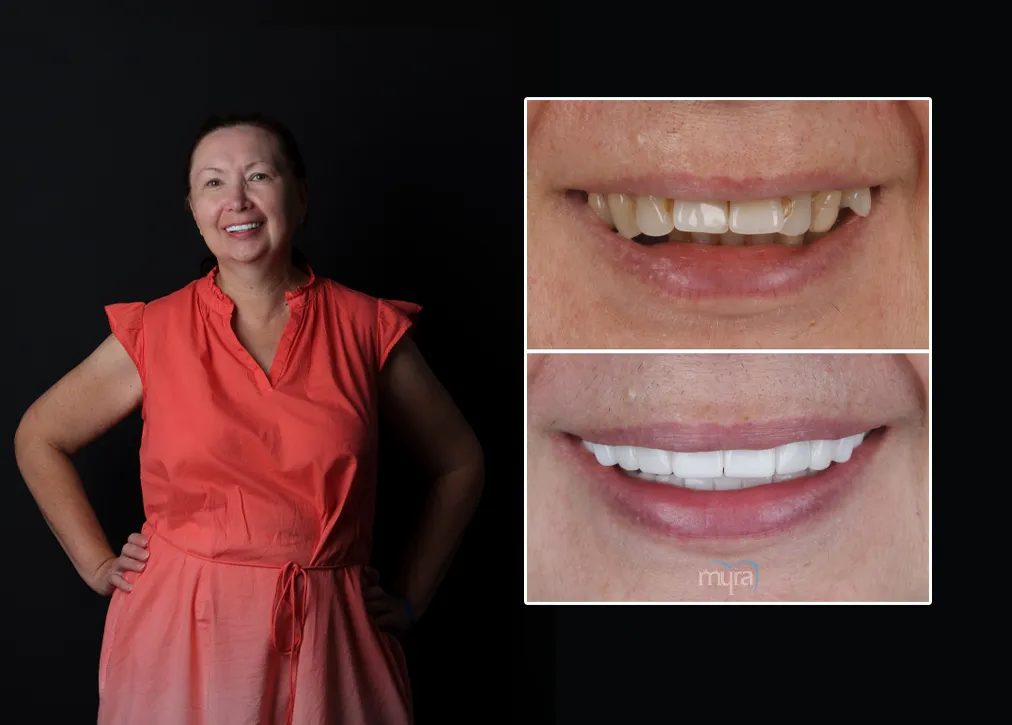
The benefits of a dental bridge in Turkey are listed below.
- Maintenance of Bite Alignment: Dental bridges help to sustain bite alignment by filling gaps left by lost teeth. A misaligned bite is an outcome of neighbouring teeth shifting to fill in the gap left by a missing tooth. Bridges help preserve the natural alignment by giving a solid and functional replacement, minimising potential difficulties, including temporomandibular joint (TMJ) disorders and uneven tooth wear.
- Avoiding Shifting of the Teeth: One of the major benefits of dental bridges is to prevent adjacent teeth from moving. A missing tooth leads to misalignment as other teeth progressively shift in the space. Bridges operate as a barrier, keeping the adjacent teeth in their correct locations. It contributes to the general structure of the dental arch and the natural alignment of the smile.
- Cost-effectiveness: Dental bridges are an affordable option for restoring tooth loss than certain alternative treatments. Bridges provide a lasting and functional restoration for a lower upfront price than more sophisticated procedures, such as dental implants. The affordability offers a compelling choice for anyone seeking a dependable tooth replacement solution that fits their budget.
- Efficiency of Time: Getting dental bridges is often faster than other options. Bridges are often installed within a quicker timescale than dental implants, which require numerous stages and several months to finish. It appeals to people who want to restore their smiles and oral function immediately.
- Enhancement in Appearance: Dental bridges contribute to cosmetic enhancement along with practical benefits. Bridges are designed to look natural and provide a smooth and aesthetically pleasing effect. The enhancement in appearance is valuable for people who are aware of spaces in the smiles caused by missing teeth.
- Restorative Function: Dental bridges are used to replace lost teeth, restoring the ability to bite, chew, and talk efficiently. Its functional feature has significance in maintaining complete dental health and avoiding issues associated with impaired chewing performance.
What are the Downsides of Dental Bridges in Turkey?
The downsides of a dental bridge in Turkey are listed below.
- Limited Time: Dental bridges have a limited lifespan in comparison to some alternatives, such as dental implants, which is one of the disadvantages. Dental bridges are maintained accordingly for many years but require replacement or further care, which necessitates more dental treatments.
- Potential for Gum Recession: Gum recession occasionally results in the placement of dental bridges. It happens if the bridge does not fit perfectly or if the implants or supporting teeth are not in the best placements. Gum recession reveals the metal foundation in porcelain-fused-to-metal bridges, altering the cosmetic look and potentially causing discomfort.
- Adjacent Teeth Alteration: Adjacent natural teeth often have to be filed down or modified to provide room for dental crowns to support a dental bridge. Part of the enamel of the healthy teeth must be removed. It is a common step in the bridge placement procedure, but it is unnecessary because it entails permanent modifications to otherwise healthy teeth.
- Issues with Maintenance: Consistent oral hygiene regimens, such as frequent brushing and flossing, are necessary to maintain dental bridges. Cleaning beneath the bridge, especially in hard-to-reach places, requires more work than maintaining real teeth. Failure to maintain good oral hygiene increases the chance of developing problems, including gum disease or decay, which lessens the efficiency and lifespan of the dental bridge.
What are Dental Bridge Materials?
The materials of the dental bridge are listed below.
- Porcelain-Fused-to-Metal (PFM): The metal foundation provides strength and longevity, while the porcelain overlay provides natural tooth colour and translucency. It is a combination of the strength of a metal foundation with the beauty of porcelain. PFM bridges are known for their durability and are frequently used in regions of the mouth that require extra support. The appearance is more opaque compared to ceramic alternatives.
- All-Ceramic or All-Porcelain: The materials with “All-Ceramic” or “All-Porcelain” dental bridges are made exclusively of ceramic materials, resulting in a very aesthetically pleasing and natural-looking result. Dental bridges are a good choice for repairing front teeth where aesthetics are important. “All-ceramic” bridges have the translucency of natural teeth, making them a prominent choice for people who value a genuine and aesthetically beautiful smile.
- Metal: Metal dental bridges are renowned for their strength and longevity. Bridges often consist of base metals or alloys, including gold. The metallic look of the bridges is what makes them uncommon in the areas of the mouth that are visible.
- Zirconia: Zirconium oxide is an aesthetically beautiful and long-lasting substance used to create zirconia dental bridges. Zirconia bridges provide an ideal combination of solidity and natural look. The resistance to chipping, durability, and biocompatibility are well-known attributes. They are a durable and aesthetically beautiful option that is often utilised in the anterior and posterior parts of the mouth.
How is Dental Bridge Performed?
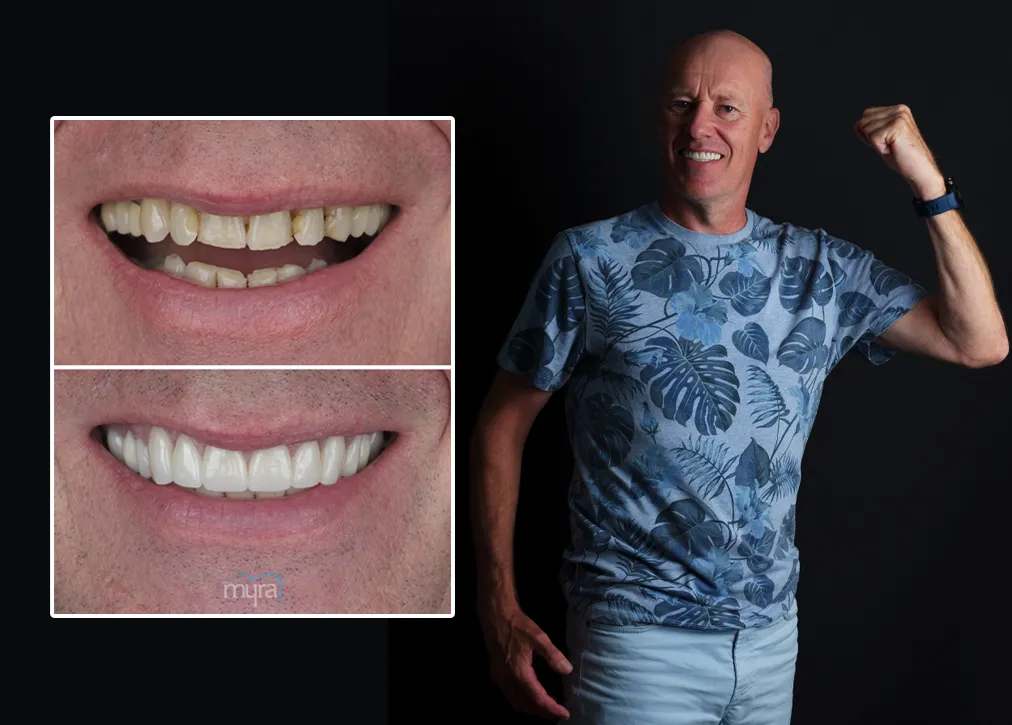
A dental bridge is performed correctly by requiring a thorough procedure including multiple crucial phases. The procedure starts with a consultation in which the dentist evaluates the patient's oral health, addresses any issues, and decides if a dental bridge is a good fit. A customised treatment plan that specifies the kind of bridge, the number of “pontics” required, and the materials to be utilised are made if it is determined that it is appropriate.
Preparing the abutment teeth is the next step, which holds up the bridge. The neighbouring teeth are meticulously sculpted for traditional bridges, and imprints of the prepared area are taken. The imprints act as a mould for creating the custom-fit bridge, which is made of zirconia, metal, all-ceramic, or porcelain fused to metal. A temporary bridge is often given to the patient to preserve aesthetics and shield the exposed teeth while the permanent bridge is being made in a dental laboratory. The patient returns for the fitting of the permanent bridge when it is ready. The dentist evaluates the patient's bite for optimal alignment, makes any required changes, and makes sure the bridge fits properly.
The permanent bridge is firmly cemented in place once the fit and look are satisfactory. The pontics in the space are stabilised by the crowns on the abutment teeth or implants. Following the post-treatment care recommendations, such as oral hygiene practises and follow-up appointments, are given to ensure the patient's comfort and the long-term success of the dental bridge. The dentist and the patient must work together carefully and cooperatively when performing dental crowns and bridges in Turkey to produce a restored and aesthetically beautiful smile.
Who Makes a Good Candidate for Dental Bridges?
A dental bridge is suitable for anyone who is struggling with one or more missing teeth and wants complete restoration that addresses the purpose and appearance. The treatment is a good alternative that works effectively for people who have dental implants because it acts as the bridge's anchors or strong, healthy neighbouring teeth. Dental bridges are a good option for people who want to enhance the aesthetics of their smile because they provide missing teeth with a natural-looking substitute that improves the attractiveness of the face.
Dental bridges are a practical and efficient option for people who are not qualified for more invasive procedures due to personal choices or medical issues. People who prefer to have a simpler and faster dental repair procedure than anything else are encouraged to undergo the procedure. Dental bridges are adaptable and are often used to repair several adjacent lost teeth or just one missing tooth.
Bridges have particular advantages for people who are self-conscious about the appearance of their teeth due to how they produce a natural-looking effect. Dental bridge compatibility depends on the patient's preferences, the precise placement of lost teeth, and each patient's oral health. Speaking with a licensed dentist enables a thorough evaluation of one's oral health and the investigation of appropriate tooth replacement choices, including dental bridges, customised to the person's particular requirements and circumstances.
Dental bridges help to maintain normal bite alignment, lower the risk of future dental problems, and stop adjacent teeth from moving into the space left by missing teeth. People who value a non-surgical approach to tooth replacement and are not good candidates for better invasive procedures, particularly dental implants, frequently prefer such restorative choices. A licensed dentist in Turkey evaluates every person’s unique oral health needs and makes individual recommendations based on certain circumstances. Potential patients need to ask for their advice before getting dental bridges.
How Do I Care for Dental Bridges?
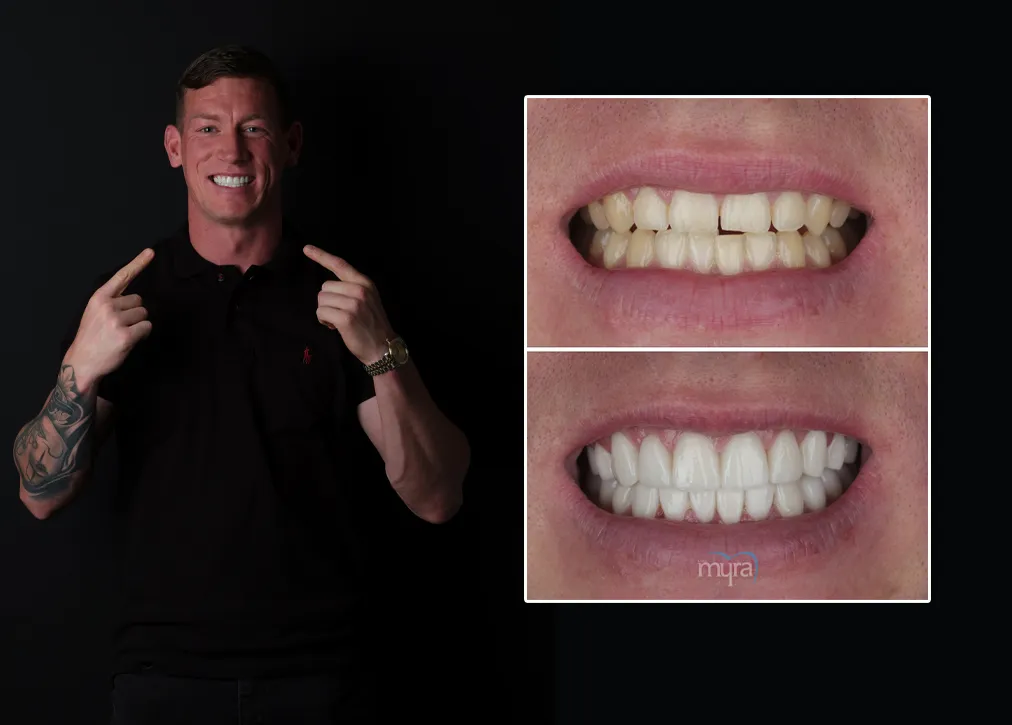
There are methods to consider for you to take care of dental bridges. The maintenance of a dental bridge includes a combination of meticulous oral hygiene practises and regular dental check-ups to ensure its longevity and best function. People are required to adhere to strict oral hygiene procedures to preserve the dental bridge's health. It involves utilising fluoride toothpaste and a soft-bristled toothbrush to brush the bridge and the neighbouring teeth twice a day. Cleaning between teeth and around bridges with floss is essential to prevent plaque buildup. Polishing beneath the bridge is accomplished by gently sliding dental floss or an interdental brush in and out. Mouthwash with fluoride or antimicrobial properties helps strengthen teeth and reduce bacteria, which is an addition to oral hygiene.
Regular dental check-ups, usually every six months or as prescribed by the dentist, are essential for monitoring the status of the dental bridge and detecting any problems early on. The dentist performs a comprehensive examination, cleans the bridge and the adjacent teeth, and handles any issues or necessary changes during the appointments. Preventing habits that threaten the durability of the dental bridge is critical. It involves avoiding extremely sticky or hard foods that are harmful to the bridge or adjacent teeth and chewing on solid objects, such as ice or pens. The effective maintenance and care of a dental bridge helps to guarantee its longevity and continuous functionality. It is achieved by a combination of strict oral hygiene procedures, routine dental examinations, and an attentive approach to food selection.
How much does a Dental Bridge Cost?
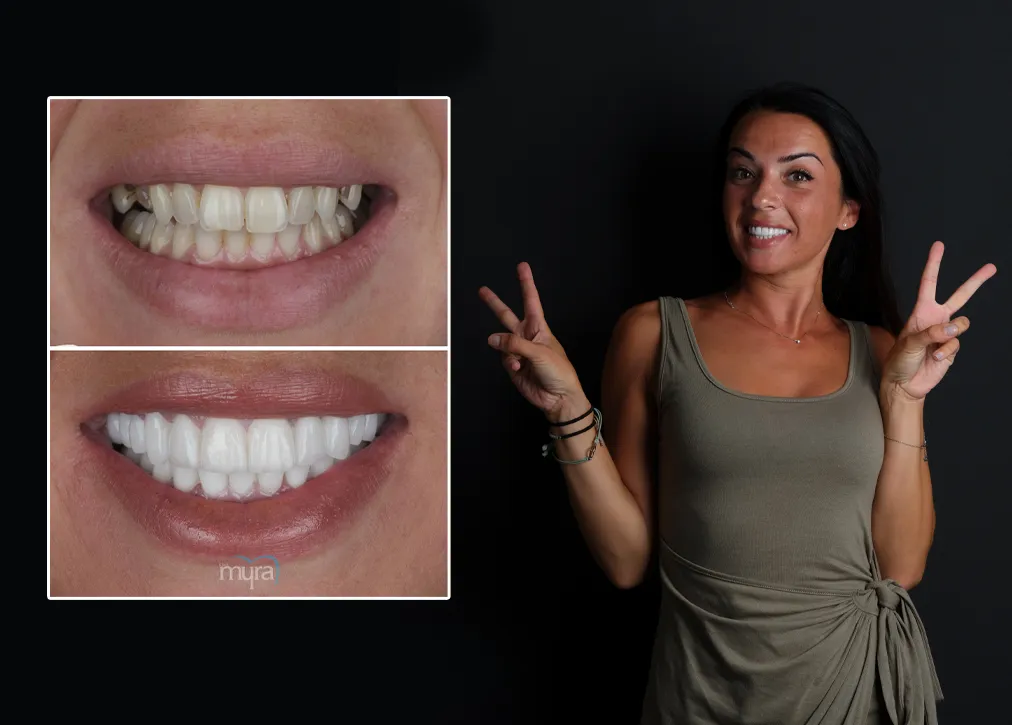
A dental bridge's costs are based on some factors that aid the procedure's overall expenses. The bridge's material selection is a valuable component, which impacts the price. The entire cost of a dental bridge operation depends on the material utilised, the quantity of teeth missing, extra treatments, and the dental provider of choice. Dental bridges are a practical and affordable treatment option for missing teeth. Bridges are quick and painless, needing just a few sessions and little effort when compared to other options, such as implants. It highlights the significance of speaking with a dentist to receive a customised estimate based on unique circumstances.
A three-unit bridge, covering one missing tooth, is expected to cost between 1,400 euros and 3,300 euros. For example, in the US, the average cost of a standard dental bridge is between $500 and $1,200 per prosthetic tooth. Prices are just estimations, though, and actual expenses vary depending on the intricacy of the procedure, the materials selected (metal, porcelain, or a combination), and the dentist's level of experience. Dental bridges are more economical in countries, such as Turkey, where medical expenses are lower, which makes them a desirable choice for people in need of restorative dental procedures.
The price of a bridge depends on the type of material utilised, such as zirconia, metal, all-ceramic, or porcelain-fused-to-metal. The quantity of lost teeth that need to be replaced matters because a bridge that replaces one tooth often costs less than a bridge that replaces several teeth. The placement of the lost teeth within the mouth affects the bridge's design complexity and ultimately increases the cost. The inclusion of primary procedures, including dental implants or tooth extraction, raises the overall cost. The location of the dental clinics or offices impacts the dental bridge's price.
How much does a Dental Bridge Cost in Turkey?
Dental bridge costs in Turkey are approximately 200 euros. A dental bridge's cost is established by adding up the number of lost teeth and the quantity of supporting teeth. Many factors affect dental bridge costs in Turkey, which makes them a desirable alternative to individuals wanting to have high-quality care at a lower cost. The selection of the bridge's material is one important component influencing the price. Patients have the freedom to select materials according to their choice and financial limitations. The materials have different costs and the number of missing teeth that must be replaced counts. The cost of a bridge for one tooth is cheaper compared to several missing teeth. The precise position of the lost teeth within the mouth influences the bridge's design complexity and total cost.
The entire cost is affected by any associated operations, including implant placements or tooth extractions. Prices in Turkey are more competitive than in other Western nations due to the country's geographic location and dental facility competitiveness. The level of care and materials utilised in Turkey is frequently on the same level as worldwide standards, despite their price. Anyone interested in getting a dental bridge in Turkey must consult with a licensed dentist to receive an accurate price based on the individual's circumstances, considering the material choices, the quantity of missing teeth, extra operations, and the preferred placement within the mouth.
How much does a Dental Bridge Cost in Antalya?
A dental bridge's cost in Antalya, Turkey is around £627 (€720) for a three-unit Zirconia. It is determined by several factors, which reflect the city's reputation for offering high-quality dental care at reasonable costs. The dental bridge's material selection is a major factor in the price. Patients match their tastes with their budget by choosing materials with different pricing, such as metal, zirconia, all-ceramic, porcelain-fused-to-metal, or any combination. Another important consideration is the number of missing teeth that need to be replaced, bridges for a single missing tooth cost less than the ones for many missing teeth. The precise location of the missing teeth within the mouth matters because the complexity of the bridge construction varies.
Patients getting a detailed treatment plan and extra procedures, including implant placements or tooth extractions, add to the total cost. Myra Dental Centre is one of the best dental clinics in Antalya, which offers the most innovative dental technology, prices, and technology. Prices in Antalya are often lower than in many Western nations due to the city's popularity as a dental tourism destination and its competitive healthcare industry. Dental clinics in Antalya use high-quality materials and uphold excellent standards of care despite their price. Individuals considering a dental bridge in Antalya must make an appointment with a professional dentist to acquire a precise cost estimate suited to their personal needs, incorporating material alternatives, the number of lost teeth, extra operations, and the specific placement within the mouth.
Dental Bridge Frequently Asked Questions
In this section, we answer most of the questions that patients wonder about dental bridges. In this guide we have prepared for you, you can find all the frequently asked questions about dental bridge.
Wax model of your standard teeth is prepared on the bridge model prepared with the dimensions of your teeth. A computer-aided device, according to the information obtained from this model, erodes zirconium oxide block and prepares the infrastructure of your teeth. The work is completed by placing appropriate colored ceramics on the structures prepared by eroding.
After the end of your dental bridge treatment, teeth whitening treatment is more appropriate. If your bridge prosthesis is in the back area, it will not be a problem, but if it is in the front area, your teeth will whiten and your porcelain will remain darker, and in this case, if it is time to renew your bridge or crown and be done according to the newly whitened color will be more appropriate.
Fixed dentures are types of dentures that occur over time, which are fixed on adjacent teeth and which the patient perceives as their own teeth or teeth. Single tooth dentures fixed bridges or dental crowns can be remedied on completion of the deficiencies of the article are referred to as losses.
Crown: decay or trauma to the tooth as a result of the destruction, in some cases, the loss of a large part of the tooth and leads to the weakening of the tooth. In these cases, filling will not be sufficient. In order to strengthen the tooth in terms of durability, it must be coated with metal-ceramic or full ceramic restorations. This veneer, which restores the shape, color and function of the tooth, is called a crown.
Bridges: Bridge Construction is one of the methods used to eliminate dental deficiencies. Missing teeth or teeth, adjacent teeth are supported by bridges are tried to be restored. For this reason, adjacent teeth need to be reduced to a certain extent. Dental Bridges usually consist of a porcelain superstructure that provides a metal substructure and aesthetics to withstand chewing forces. However, in today's technology, it is possible to make more aesthetic and natural bridges only with porcelain in some cases.
The average price of one of the dental veneers in Turkey is around 200 euros and in the case of a bridge, the number of missing teeth and the number of supporting teeth are collected and a price is determined. But if you go to a private dental clinic for a veneer in European countries such as the UK, Germany or Belgium, your cost could be as high as 700 euros. In the US, having a veneer has a price range between $ 1,000 and $ 3,000 per tooth. Many dental clinics in Turkey do not charge a consultation cost.










